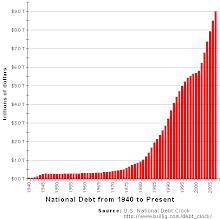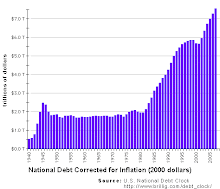The U.S. economy shed jobs at a blistering pace in November, pushing the overall unemployment rate to 6.7 percent and putting new pressure on federal officials to approve another big stimulus package sometime soon.
Employers cut 533,000 jobs from their payrolls during the month, the worst decline since December 1974 and a much bigger drop than economists had predicted.
Companies also eliminated more jobs than first thought in September and October. That brings total job losses since the recession began in December 2007 to about 2.7 million, according to the Labor Department.
"Today's employment report reflects the difficulties in our economy. It is devastating when Americans lose their jobs, and many are worried about their future job security," said Commerce Secretary Carlos Gutierrez.
"These are really God-awful numbers. The economy's headed downhill and really the brakes are not working," said Sung Won Sohn, professor of economics and finance at California State University, Channel Islands.
Nearly every sector of the employment market lost jobs, including manufacturing (85,000), professional and business services (101,000), and leisure and hospitality (76,000). Unemployment rose for both adult women (5.5 percent) and adult men (6.5 percent).
"Right now I would take anything; I'd go down to $6 or $7 [an hour] just to have a job," says Ray Ross of Nashville, Tenn., who was recently laid off from his job as a security guard. His former employer has put him on call, but he isn't getting much work.
The retail sector lost 91,000 jobs, with auto dealers alone down by 24,000, underscoring the way Detroit's troubles are filtering through the broader economy. The drop comes in a week when officials of the big U.S. automakers are on Capitol Hill seeking financial assistance, and it is likely to make it harder for Congress to turn them down.
As high as it appears, the 6.7 percent unemployment rate actually underestimates the number of people hurt by the declining jobs market, because it doesn't include people who have given up searching for work or part-timers who would like to work full time, Sohn said. The report says more than 400,000 people left the labor market this year because they believe no jobs are available, he said.
Forty-eight-year-old Edward Stewart Jr., of Kansas City, Mo., has been subsisting on day jobs and occasional temporary gigs, but he would prefer to work a full week.
"Right now, I'm searching the Web and trying to make some phone calls and trying to get some work for like a janitorial service maybe, whatever comes up," he says.
In addition, the Labor Department estimates that about 600,000 workers have simply stopped looking for jobs, up from about 259,000 a year ago.
When these two groups are included, the effective unemployment rate is actually much higher than it appears, about 12.5 percent, Sohn says.
November's big drop puts new pressure on the incoming Obama administration and Congress to approve an economic stimulus package as quickly as possible. The president-elect has talked about a plan to create 2.5 million new jobs, at least in part by funneling money to the states to pay for large infrastructure projects.
"The jobs picture painted today is staggering, and it should be all the evidence Washington needs to act swiftly and decisively to shore up this economy," said Sen. Charles Schumer (D-NY).
Bush administration officials tried to sound a more optimistic note, saying the financial rescue package put into place by the Treasury Department would ultimately help the job market. U.S. officials have taken a number of steps to try to stabilize the financial system, such as buying stock in major banks and guaranteeing certain kinds of securities.
"it's going to take time for all the actions we've taken to have their full impact, but I am confident that the steps we're taking will help fix the problems in our economy and return it to strength," said President Bush, meeting with reporters at the White House today.
"My administration is committed to ensuring that our economy succeeds, and I know that the incoming administration shares the same commitment," he added.
The gloominess of the report sent stock prices down sharply early in the day, but they later rebounded. The Dow Jones industrial average rose by 259 points, finishing at 8635.
Friday, December 5, 2008
The Effective Unemployment Rate
In the December 5, 2008 National Public Radio (NPR) story "U.S. Unemployment at 15-Year High," Jim Zarroli includes an explanation of the effective unemployment rate. It includes discouraged workers (those that have stopped looking for work) and the underemployed (those who are not working as much as they want or need to work, such as part-time workers who want to work full-time).
Subscribe to:
Post Comments (Atom)






No comments:
Post a Comment